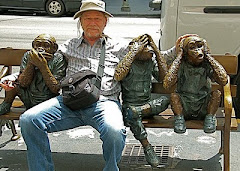 |
| Rally in Portsmouth, NH accross from the Shipyard, 10/15/11 |
“And even more galling to me, here in New Hampshire, one of the richest states in the union, state government is balancing the budget on the backs of our most vulnerable citizens during this great recession (depression?) when so many are unemployed and suffering in countless ways.”
I wrote about taking solace from reading, Thinking Class, by Joanna Kadi, particularly her chapter entitled Writing as Resistance, Writing as Love: “Do I espouse the oppressive lie about 'pulling myself up by my bootstraps...' Or do I understand my literacy and writing skill as one tool for resistance and liberation? Why do I write? For who, for what? Who benefits?”
I went on to credit Kadi's straight talk for giving me a needed wakeup call: “As a self-described working-class, lesbian of Arab ancestry, she viscerally understands her position in society, feeling discrimination to the very core of her being. As a white man, because oppression is not constantly in my face, I sometimes forget. (Although as a Vietnam veteran, I shouldn’t).”
Then I offered my take on the situation: “The truth is: It's too late for talking heads and blue ribbon committees to fix this mess. Instead we must join with one another in solidarity and resist!”
------------------------------------
Now, 15 months later, I am elated to see it really happening: People, all around the world, standing up, shoulder to shoulder with one another, RESISTING! First came Arab Spring with courageous folks across the Middle East massing together and demanding democratic change. And now, in September, the emergence of a burgeoning new movement in this country, Occupy Wall Street (OWS) which went global last weekend with actions in over 900 cities throughout the world.
Today I want to sing the praises of another writer and activist, Ariel Dorfman , who like Joanna Kadi, uses his writing not just to resist oppression but to offer hope and encouragement to the rest of us. In Dorfman’s recently published memoir, Feeding the Dream, he writes about his difficult journey as an exile after he was forced to flee for his life after the military took power in Chile in 1973, after killing Salvadore Allende.
Salman Rushdie has praised the book as a passionate reminder that "we are all exiles," that we are all "threatened with annihilation if we do not find and celebrate the refuge of our common humanity," as Dorfman did during his "decades of loss and resurrection."
Dorfman’s memoir about “his decades of loss and resurrection,” resonates with me, even though I’m just a private on the battlefield compared to Dorfman. I remember the crackling energy and optimism in the air in the late 1960s and early 1970’s: we felt we were riding an irresistible wave to a shining new future; the Age of Aquarius was Dawning. When that wave lost momentum, stalled, and receded…and then continued to recede over the last three decades, we were devastated, left to drift aimlessly in the back eddy of what was increasingly stagnant water.
Hunter Thompson described it poetically in his book, Songs of the Doomed:
“And that, I think, was the handle—that sense of inevitable victory over the forces of Old and Evil. Not in any mean or military sense; we didn't need that. Our energy would simply prevail. There was no point in fighting—on our side or theirs. We had all the momentum; we were riding the crest of a high and beautiful wave...
“So now, less than five years later, you can go up on a steep hill in Las Vegas and look west, and with the right kind of eyes you can almost see the high-water mark—that place where the wave finally broke and rolled back. “(pp 140-141).
After the wave broke, like Dorfman, I lost my compass: dropping out of grad school, going back to the land, fruitlessly attempting to write. I can so identify with Dorfman when he says that after beginning his exile, he “began to type like a man possessed…But only a flood of recriminations and despair guttered out and I forced myself to stop.
Dorfman is heroic because despite his despair and feelings of powerlessness, he was able to keep the faith: “I did not want to add to the tragedy we were living unless I could offer some glimmer of hope, unless I was able to express a truth that was at that point in my existence, quite simply unspeakable. The silence I lapsed into lasted two more years, the worst of my life…”
That’s what ‘Feeding on Dreams' is about: “the story of that desolation and how I managed to survive it, keeping my dignity and even my sense of humor intact, all that I learned from that experience.”
Persevering against all odds, he rediscovers his voice: “When I ultimately emerged from the earthquake of that experience, I began to write myself back home, began to write a home for myself in the literature I was blessed to inhabit…” And more important, paint a picture of a positive alternative reality, a shining city on a hill, a new community that is there for all of us to join.
“I am still flooding the world with my secrets. Except that now I have company in those who read me and in those who struggle in countries of recent rebellion and nascent democracy that inspire the globe today.








